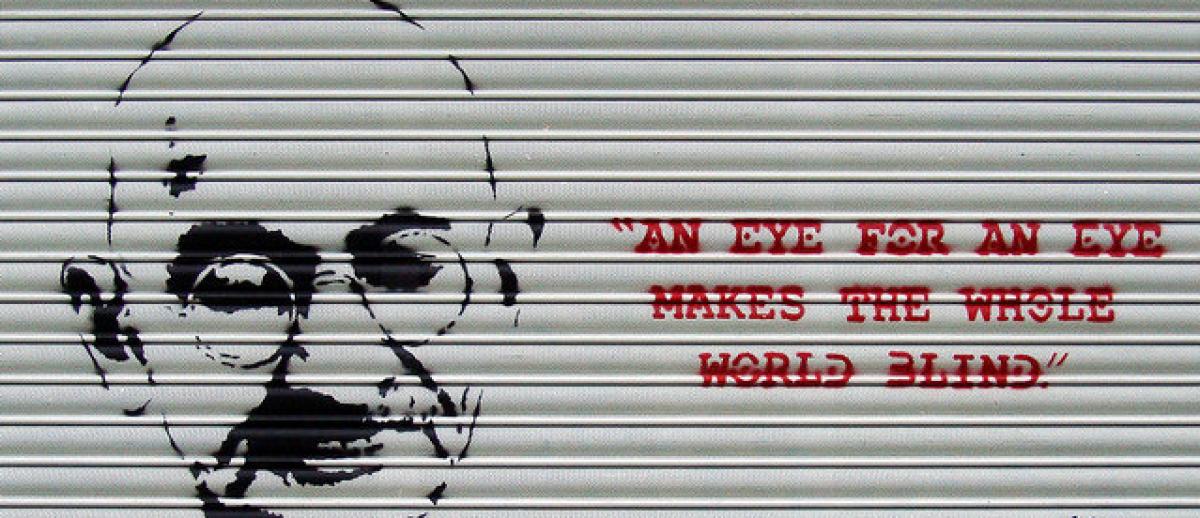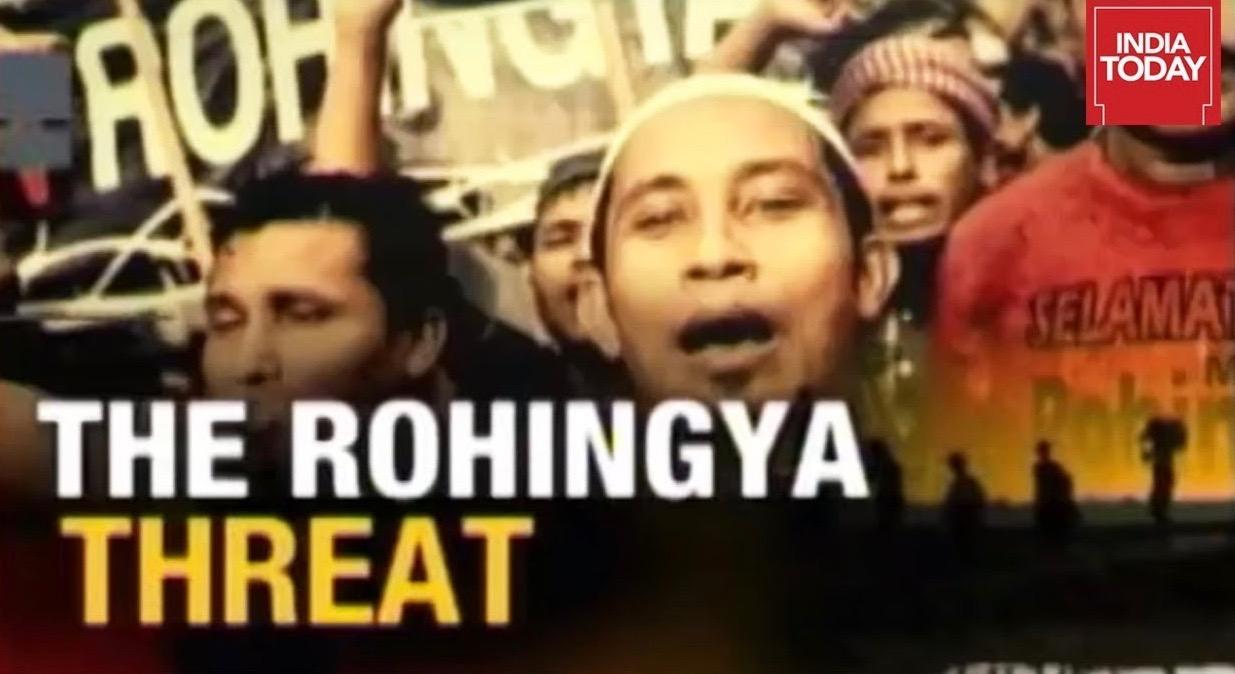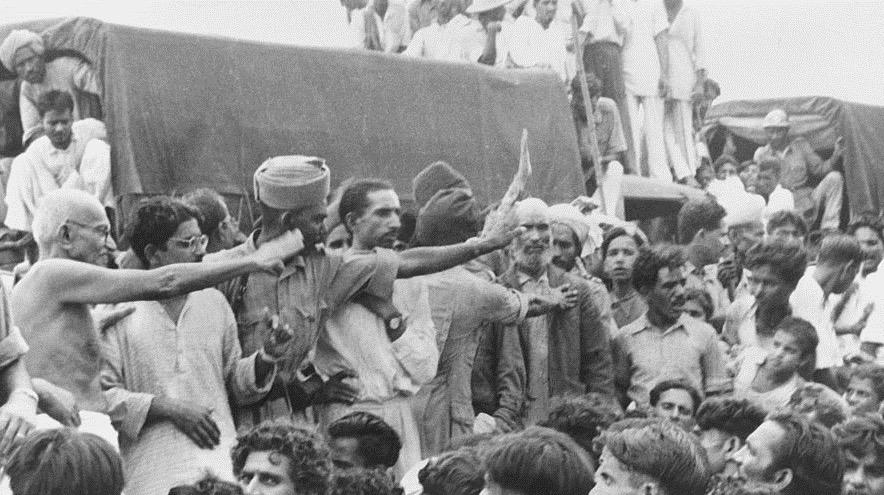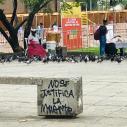The Road to Toleration: On the Ethical Virtue of Doubt
archive


The Road to Toleration: On the Ethical Virtue of Doubt
In liberalism the concept of toleration flows from a specific notion of what we owe others, and helps us to find an answer to a troubled question: how do we learn to respect people who are not like us? Though the term tolerance is unfortunate because it signifies paternalism, once it is understood in its fullness as a concept, it proves to be of tremendous value for societies marked by deep differences, or societies inhabited by people who do not speak, in many ways, quite the same language. The language of toleration tells us that even if we have the power to coerce other people, we refrain from doing so because they have good reasons for believing the way they do. At the same time, the dilemmas of toleration in classical liberal thought are well known. We tolerate and, thereby, extend respect to other people because we think that they have worked out their opinions rationally. If we find that their language or practices are beyond tolerance, we have equally good reasons for withdrawing respect. In other words, the obligation of tolerating, and therefore of treating other human beings with the dignity they deserve, depends on our capacity to make informed judgements.
Suppose we were to take a metaphorical step back, hesitate from foregrounding the ‘I’ (as an embodiment of sage judgement) and reflect on the possibility that our knowledge of what should be tolerated is seriously flawed? Would we be quite as hasty in judging others as unworthy of respect and therefore as less than human—something that, buffeted by hate-filled political discourses in social media and popular opinion, we seem to do? My suggestion is that the philosophical virtue of doubt in our capacity to know the truth can, perchance, articulate an ethics of toleration and of respect as constitutive of the social order.
The story of epistemic deficits begins, as most ethical narratives in political theory do, with the philosopher Socrates. In Plato’s Apology, the philosopher defends himself against what to Athenians appeared a serious charge, that he spread discontent because he prompted discussion and debate. His friend Chaerephon, recounted Socrates, asked the Oracle at Delphi whether anyone was wiser than the philosopher. The Pythian prophetess replied in the negative. Socrates confessed that he was taken aback, because he knew that he was not the epitome of wisdom. He set out to prove the Oracle wrong by discovering a man wiser than him. But when he began to speak with men who had formidable reputations for wisdom, he realized that he had an advantage over them. Whereas he himself knew that he did not have complete knowledge, so-called wise men did not recognize the limits of their wisdom. “Well,” he concluded, “although I do not suppose that either of us knows anything really beautiful and good, I am better off than he is, for he knows nothing and thinks that he knows; I neither know nor think that I know.”1
The Socratic notion of wisdom helps us to understand that the truly wise recognize that there are limits to knowledge. It follows that we ought to subject our opinions and prejudices to rigorous scrutiny before we participate in the mythologies of hate, typing other communities as inferior, as the enemy, or indeed as the ‘other’ with whom we can have no truck or transaction. It is shameful how the Rohingya community has been stereotyped as Islamist terrorists by its own country, Myanmar, and by neighboring countries like India. We can, we should be able to share the pain of people hounded and hunted by the army, but only if we stop and wonder whether our responses to stories churned out by irresponsible media are wise and prudent.

Doubt is not always a negative quality. In the Indian epic Mahabharata, the eldest of the five brothers who are wronged by their kinsmen and fight a just war to reclaim their rights is Yudhishtar, a Hamlet-like figure. Ever moral, ever obsessed with what is right, ever steeped in doubt, Yudhishtar is wracked by moral dilemmas. Or so it appears. He is also Dharamraj, the keeper of dharma or the normative order. His reflections on the delicate balance between dharma and satya, the truth, provide some of epic’s most compelling instances of dialogue with the self.
The supreme philosophical virtue of doubt in our often too fallible capacities to know and to judge might just guide us towards reflection, rethinking, and questioning of our first-order opinions. Where there is doubt there cannot be violence. This was emphasized by no less than M.K. Gandhi, who based a philosophy of non-violence and of toleration on the realization that we simply do not know whether we know, or what we know. Knowledge leads to truth, but we can never know what the truth is. I, Gandhi wrote, have been striving to serve the truth and have the courage to jump from the Himalayas for its sake. I know I am still very far from that truth. As I advance towards it, I perceive my weakness ever more clearly and the knowledge makes me humble.2
My suggestion is that the philosophical virtue of doubt in our capacity to know the truth can, perchance, articulate an ethics of toleration and of respect as constitutive of the social order.
Gandhi was no moral relativist. He held that persons have the moral capacity to know the truth, but not the entire truth. For this precise reason, no person or group can practice violence against others in words or in deed, in the secure belief that her/ their truth is the ultimate truth, and that other truths are false or travesties of the real thing. We also realize that just as our (partial) truth is dear to us, equally partial truths are bound to be dear to other people. There is simply no point in comparing worldviews or in grading them, or in pronouncing one conception of the good as superior to the other. For Gandhi, ahimsa, or non-violence, is the outcome of an epistemic deficit.

Gandhi visits Muslims awaiting transportation to Pakistan, September 27, 1947
What is intolerance but violence against the sensibilities, the emotions, the self-esteem and the bodies of others? In today’s India, self-styled representatives of the majority community exhibit intolerance towards other ways of life, ranging from dietary preferences to modes of worship, through acts of mind-boggling violence. India has become intolerant because power elites reject minority communities as worthy of respect. In the process not only are minorities diminished, the holders of power diminish themselves. The conviction that we possess the truth and others do not leads to arrogance, overweening pride, and ignorance.
For Gandhi, ahimsa, or non-violence, is the outcome of an epistemic deficit.
But the moment we are wracked by doubt, and realize that we know but the partial truth, we may well modify our own pretensions to knowledge. Dissolution of vanity, and the Socratic recognition that we after all do not know all there is to know, might just enable plural and divided societies to move together in a shared search for the truth. Gandhi’s truth is hugely relevant for today’s world, because we are confronted by one urgent political task. We need to establish processes that bring individuals together, encourage them to speak to each other, and keep the conversation going. It has been aptly recognized by scholars that dialogue does not search for an end; it is processual. The one important task is to keep people, who might otherwise regard each other as the unknown, talking to each other.
Notably, many of the tragedies we read about in our morning newspapers, from refugees to genocides, are an outcome of regarding other persons as less than human and as less than worthy of being recognized. The moment we initiate a dialogue with others, we recognize that other people have equal moral standing, or simply that they are human. Even as we recognize their humanity, we might, perchance, begin to question our own sentiment of superiority at worst, and our social indifference at best.
A story in the Mahabharata spotlights this very well. An upper caste sage wandered from place to place, searching for wisdom, and ultimately sat at the feet of a low caste butcher amidst carcasses of animals in a slaughterhouse, and learnt how to balance righteous conduct with tolerance and non-violence. Vrinda Dalmia suggests that the sage Kausika’s transformation began when he shamefully confronted his moral fall (his gaze had shrivelled a crow to cinders because its cawing had disturbed his meditation) and linked it with a cognitive limitation. He realized that whereas he might not know, or only know imperfectly, there can be others, even those who are on the margins of society, who might know more than him. The acknowledgement of imperfectability can lead to a conversation in which both recognize each other as bearers of wisdom.3
The supreme philosophical virtue of doubt in our often too fallible capacities to know and to judge might just guide us towards reflection, rethinking, and questioning of our first-order opinions. Where there is doubt there cannot be violence.
I am not suggesting that the spirit or the ethos of toleration will help us to sort out all kinds of ethnic conflict. Toleration is a social principle that is best realized within a democratic state, a state committed to the equality of its people as well as all religious and ethnic groups. Conversely, laws, regulations, and prohibitions are simply not enough. When persons are subjected to intolerance because they belong to ‘this’ or ‘that’ ethnic group, other people ought to be agitated and disturbed. This may not happen unless toleration is incorporated into social values through innovative vocabularies and creative imaginaries, some insistence and a great deal of persuasion. What we call the ‘political’ is not a given, it demands a high degree of investment. The labor is well worth it. Howsoever rocky the allegorical road to toleration may be, we need to painstakingly construct it through purposive arguments and dialogue. The future of our common humanity is, after all, at stake.
1 Plato, 1996, Apology. In Mortimer J. Adler (ed.) Great Books of the Western World. Chicago:
2 M.K. Gandhi, 1966. “What is Truth.” 20 November 1921, Collected Works of Mahatma
3 Dalmia, Vrinda, 2014. “Care Ethics and Epistemic Justice: Some Insights from the
Mahabharata Now: Narration, Aesthetics, Ethics. New Delhi: Routledge,
115-131, p. 121
Galeotti, Anna, Elizabetta 2002. Toleration as Recognition.
Hill, Christopher, 1999. "Toleration in seventeenth century England: Theory and
Intolerance in Modern Life. Edinburgh: Edinburgh University Press, pp. 27-44
Walzer, Michael, 1997. On Toleration. New Haven: Yale University Press.



